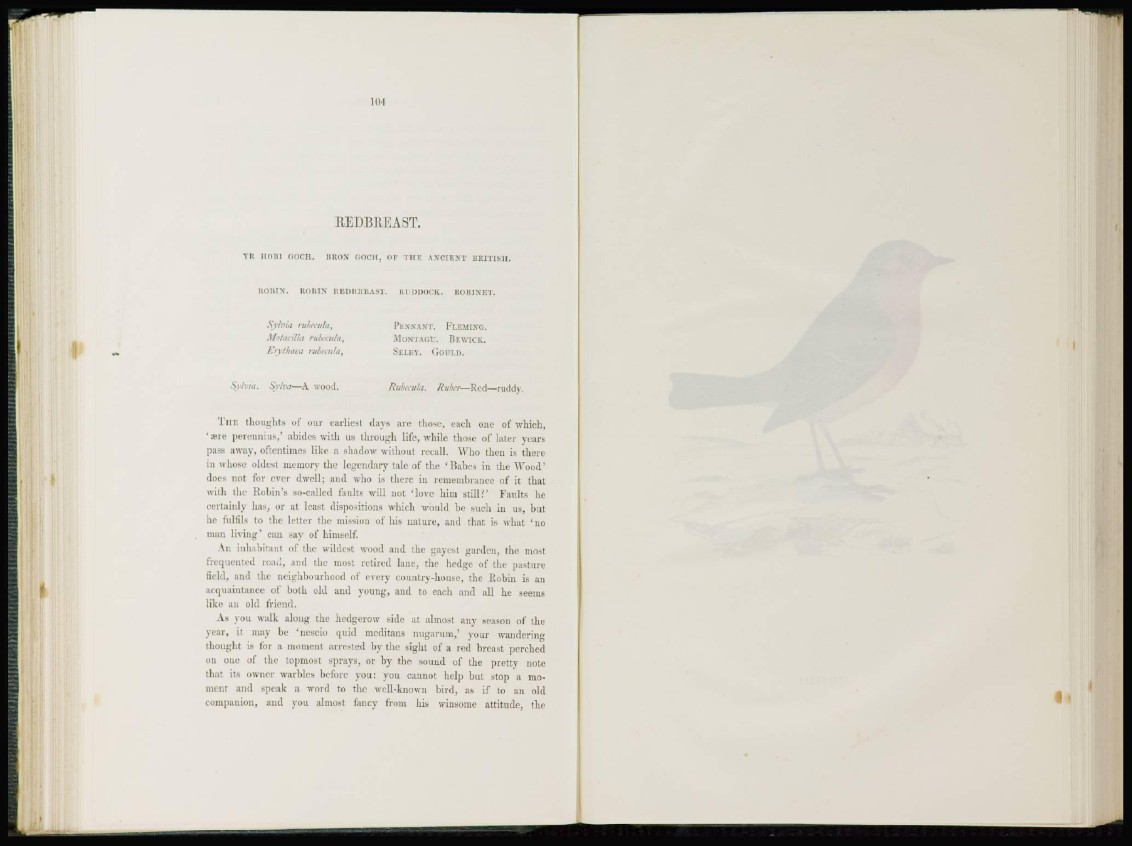
REDBREAST.
YU HOB! OOCB. BROS OOCH, OF THE A \ C [ EM 1 BRITISH.
ROBIN. ROBIN RBDBBRAST. RUDDOCK. ROBfNBT.
Sylvia rubfcula. PENNANT. FLEMING.
Molacilla rubenth, MONTAGL". BF.WICK.
Eryihaca rubaula, SELBY. (ioui.n.
Sylvia. Syh'ii—A wood. Rubecula. Ruber—Red—ruddy.
T h e thought! of our earliest days are those, each one of which,
• » r e perennius,' abides with us through life, while those of later years
pass away, oftentimes like a shadow without recall. Who then is there
in whose oldest memory the legendary tale of the 'Babes in the Wood'
does not lor ever dwell; and who is (here in remembrance of it that
with the Robin's so-called faults will not 'love him still.'' Faults he
certainly has, or at least dispositions which would be such in us, b u t
he fulfils to the letter the mission of his nature, and that is what 'no
man living" can say of himself.
An inhabitant of the wildest wood and the gayest garden, the most
frequented road, and the most retired lane, the hedge of the pasture
Held, and the neighbourhood of every country-house, the Robin is an
acquaintance of both old and young, and to each and all he seems
like an old friend.
As you walk along the hedgerow side at almost any season of the
year, it may be 'nescio quid meditans nugarum,' your wandering
thought is for a moment arrested by the sight of a red breast perched
on one of the topmost sprays, or by the sound of the pretty note
that its owner warbles before you: you cannot help but stop a moment
and speak a word to the well-known bird, as if to an old
companion, and you almost fancy from his winsome attitude, the